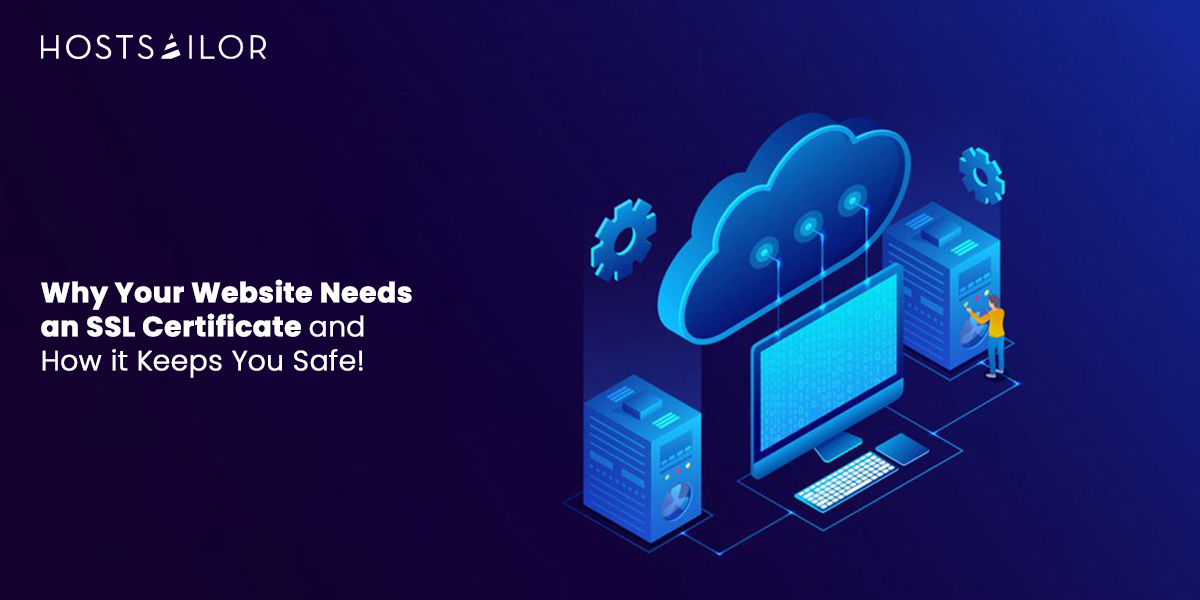
Voltaire once said, “With great power comes great responsibility,” and in our modern day and age, “with great technological advancements come concerning cyber threats.” But with these threats constantly evolving, you have the responsibility of keeping your website’s visitors data protected. One way to do this is by implementing an SSL (Secure Sockets Layer) certificate—an essential piece of the puzzle of website security. In this guide, we take a deep dive into what SSL certificates are and how they give your website a good layer of security. Let’s get right into it!
First Things First, What is an SSL Certificate?
Simply put and explained, an SSL certificate, or Secure Sockets Layer certificate, is a type of digital certificate used to authenticate a website and encrypt data between a web server and a user’s web browser. It’s like some sort of virtual padlock that secures your connection.
Why Are SSL Certificates So Important?
There are many reasons—more than we can count—why SSL certificates are essential to your website’s security. Here are some key reasons:
They Strengthens Security
The very simple yet essential role of an SSL certificate is to encrypt data transmitted between the user’s browser and your website. That basically means that sensitive information, such as login details, credit card information, medical records, or any personal information, can’t be intercepted and read while in transit. If there is no SSL in the connection, data is transferred as plain text; hence, it’s pretty easy to eavesdrop and hijack.
They Provide Authentication
Another cool reason why SSL certificates are quite important is that they authenticate communication, ensuring that the information being sent out or received is going to and coming from the intended server.
This helps prevent man-in-the-middle attacks, where an attacker intercepts and potentially alters the communication between two parties. This builds trust with your users because it verifies your website’s identity to them, letting them know they are visiting a legitimate site.
They Boost Trust and Credibility
Websites with the seal of an SSL certificate will display a padlock in the address bar, and “https” instead of “http,” indicating that a website is secure to its visitors. It’s a visible cue, building trust in your website among your users. People are far more likely to interact with and conduct business on a site they trust is safe. Without an SSL, though, websites could be labeled as “Not Secure” by browsers, scaring off prospects.
They Improve SEO
Because search engines like Google have actually taken into consideration the presence of an SSL certificate as part of their ranking algorithms, an SSL certificate will clearly improve your website’s search engine ranking and increase its visibility to a number of prospects. Google has verified that HTTPS is a ranking signal, meaning that with an SSL certificate, your website will appear as one of the top results on relevant searches as opposed to insecure websites.
They Comply with Regulations
Since this is highly sensitive data, many industries are required to comply with a set of strict data protection regulations. For example, in Europe, it is the GDPR, while in the United States, it is HIPAA. Compliance with such regulations very often requires the use of SSL, ensuring that sensitive data should be handled only in a securely treated manner. Non-compliance in such areas results in a fine, coupled with possible legal action.
They Protect Against Phishing
Another usual technique used by hackers to trap users is phishing. The purpose of the SSL certificate is to ensure that the clients are connecting to the real website. They prevent phishing attacks by verifying the website’s identity. This makes it harder for scammers to create fake websites that look legitimate.
And there you have it! That was your comprehensive guide to how important SSL certificates are for website security.
So, what’s the verdict? Do you think you need an SSL certificate? Well, sure, you do! Incorporating an SSL certificate into your website’s security infrastructure is not just an option; it’s a necessity. Regardless of the type of website you have, you need an SSL certificate. It’s not just for e-commerce sites that process payments. If your website collects any kind of user data, even just email addresses, you should have an SSL certificate for security and trust.
If you want to purchase an SSL certificate for your website, HostSailor is your trusted partner for the job; just reach out to us today!
FAQs
What is an SSL cert?
An SSL certificate, standing for Secure Sockets Layer certificate, is a digital file that authenticates a website’s identity and encrypts information exchanged between the website and a visitor’s web browser.
What are the 3 types of SSL certificates?
There are three main types of SSL certificates, differing in the level of validation performed:
- Domain Validation (DV): Verifies the website domain ownership, offering basic security.
- Organization Validation (OV): Confirms the domain ownership and the organization behind it, providing a medium level of trust.
- Extended Validation (EV): Performs the most in-depth verification, including business details and legitimacy, offering the highest level of trust (indicated by a green address bar in some browsers).
How to get an SSL certificate?
You can obtain an SSL certificate from a Certificate Authority (CA), a trusted third-party organization that verifies identities and issues certificates. Web hosting providers often offer SSL certificates as part of their plans, or you can purchase one directly from a CA.
What is the full form of SSL?
SSL stands for Secure Sockets Layer. It’s a cryptographic protocol that establishes a secure connection between a web server and a browser.
Why do I need an SSL certificate?
SSL certificates are essential for websites that handle any sensitive information, like login credentials, credit card details, or private data. They offer several benefits:
- Encryption
- Authentication
- Trust
- SEO
